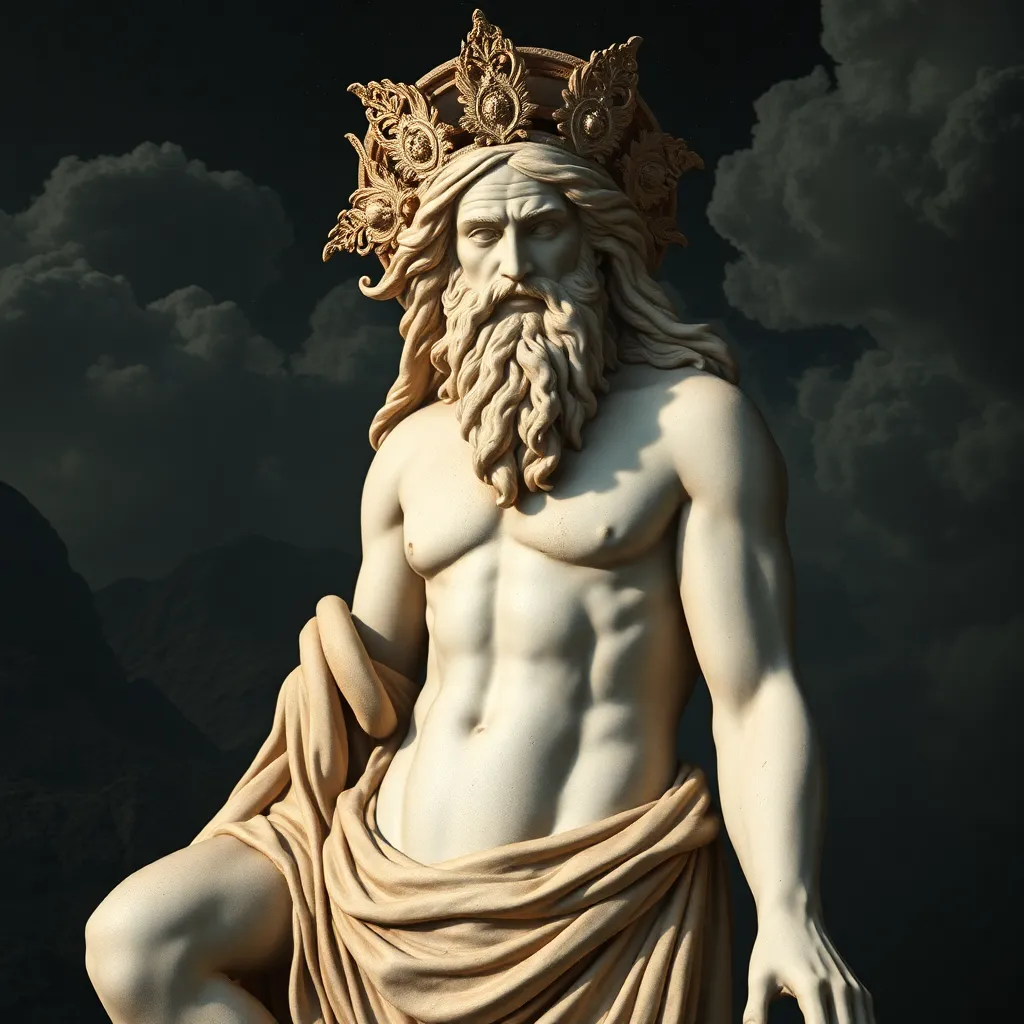Dionysus and the Exploration of Human Psyche in Myth
I. Introduction
Dionysus, the ancient Greek god of wine, fertility, ritual madness, and ecstasy, stands as a multifaceted figure in mythology. His unique duality encompasses a spectrum of human experiences, making him a profound symbol through which we can explore the depths of the human psyche. By delving into the myths surrounding Dionysus, we can gain insights into the complexities of our emotions, desires, and societal structures.
Exploring the human psyche through mythology is vital as it allows us to connect with universal themes that resonate across cultures and eras. Myths serve as mirrors reflecting our inner worlds, providing a rich tapestry of narratives that can help us understand ourselves better.
This article aims to examine how Dionysus embodies and reveals various aspects of the human psyche, inviting us to reflect on our own experiences and the broader cultural narratives that shape us.
II. The Mythological Background of Dionysus
Dionysus’s story begins with his extraordinary birth. He is often described as the son of Zeus and Semele, a mortal princess. His birth was marked by tragedy; Semele was consumed by Zeus’s divine form, leaving Dionysus to be born from Zeus’s thigh. This unconventional birth not only emphasizes his dual heritage but also his role as a bridge between the divine and mortal realms.
Core myths associated with Dionysus include:
- The journey to the underworld to rescue his mother, demonstrating his connection to life, death, and rebirth.
- The establishment of his cult and the celebration of the Dionysian festivals, which emphasized ecstasy and communal joy.
- The transformation of individuals and communities through wine and revelry, highlighting the liberating power of his influence.
Dionysus was crucial to Greek culture and religion, embodying essential themes of fertility, growth, and the cyclical nature of life. His festivals, particularly the Dionysia, celebrated not only his divine attributes but also the human experience of joy and sorrow.
III. The Dual Nature of Dionysus
The duality of Dionysus is a central theme in understanding his character. He embodies both ecstasy and madness, reflecting the thin line between joy and chaos. This dichotomy is evident in myths where his followers, the Maenads, become frenzied in their worship, illustrating how bliss can quickly turn to madness.
Dionysus’s narratives balance creation and destruction, symbolizing the transformative power of intoxication and the potential for both enlightenment and chaos. This duality has profound implications for the human experience:
- It reminds us of the necessity of embracing both light and dark aspects of ourselves.
- It highlights the importance of finding balance in our emotional and psychological lives.
- It encourages a deeper understanding of our motivations and desires, revealing the complexities of human nature.
IV. Dionysus as a Catalyst for Transformation
Wine and intoxication play a pivotal role in the exploration of the psyche within the context of Dionysus. Wine is not merely a substance; it serves as a vehicle for transcending ordinary consciousness, allowing individuals to confront their innermost fears and desires.
Dionysian rituals, characterized by ecstatic dance and communal celebration, hold significant meaning in personal transformation. These rituals create a space for individuals to shed societal constraints, explore their identities, and connect with others on a profound level.
In contemporary therapeutic practices, the themes associated with Dionysus resonate strongly. Techniques that encourage self-discovery and emotional release often draw from the same principles that underpin Dionysian rituals, emphasizing the therapeutic potential of community, creativity, and altered states of consciousness.
V. The Influence of Dionysian Themes in Literature and Art
Dionysus’s influence extends beyond ancient Greece, permeating classical literature and art. Authors such as Euripides and Homer portrayed him as a complex figure whose presence elicits both admiration and fear.
Artistic interpretations of Dionysus often highlight his dual nature, showcasing scenes of revelry alongside depictions of violence and madness. Notable works include:
- The paintings of Peter Paul Rubens that celebrate Bacchanalian festivities.
- The sculptures of ancient Greece that capture the ecstatic nature of his followers.
In contemporary media, Dionysian themes continue to resonate. Films, literature, and art often explore the tension between societal norms and primal instincts, echoing the age-old narratives surrounding Dionysus.
VI. Dionysus and the Collective Unconscious
From a Jungian perspective, Dionysus represents archetypes that resonate within the collective unconscious. His themes of ecstasy, chaos, and transformation connect with fundamental human experiences and societal fears.
The archetypes associated with the Dionysian experience include:
- The Trickster: Challenging societal norms and expectations.
- The Hero: Embodying the journey of self-discovery and transformation.
- The Shadow: Representing the darker aspects of human nature that must be acknowledged and integrated.
Understanding Dionysus’s role in this context can illuminate societal fears and desires, helping us to navigate the complexities of modern existence.
VII. The Relevance of Dionysus Today
In contemporary psychology, Dionysian themes have significant relevance. As discussions around mental health evolve, the importance of embracing the full spectrum of human emotions, including joy and sorrow, becomes increasingly recognized.
Dionysus’s principles can inform personal and societal growth by encouraging us to:
- Explore our emotional depths without fear of judgment.
- Engage in communal practices that foster connection and healing.
- Challenge societal constraints that inhibit self-expression and creativity.
VIII. Conclusion
In summary, the exploration of Dionysus and the human psyche reveals profound insights into our emotional and psychological landscapes. His dual nature, role as a transformative catalyst, and enduring influence across art and literature underscore the timeless relevance of myths in understanding ourselves.
As we reflect on Dionysus’s enduring legacy, we are encouraged to explore our personal connections to these themes in our lives and cultures, embracing the complexity of our human experience.




